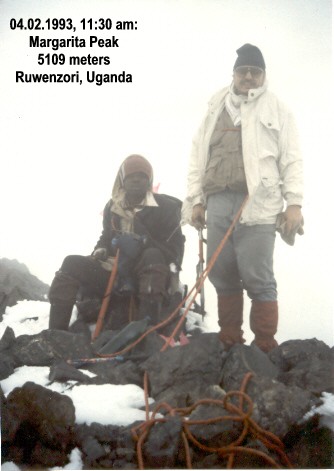Ghana - NGO Boss puts African leaders on the carpet
… Blames them for the slow pace of development on continent
From Isaac Akwetey, Tema | Posted: Friday, May 25, 2007
According to him, the leadership on the continent lacks the right policy mechanisms such as agricultural, trade and other industrial policies, which could speed up development on the continent.
Delivering a speech at a one-day seminar dubbed “African Child Celebration” at Tema, Mr. Akalbila said African leaders depended on the European Union (EU) for policies to implement for the development of the continent.
The seminar was to express concerns about the signing into action of the Economic Partnership Agreement (EPA) and issues affecting children and livelihoods on the African continent.
Speaking on the theme “People Livelihoods – Centred Solutions; Key to Sustained Development in Africa” he explained that the leadership of Africa lacks that will- power to propel the continent to accelerated socio-economic development.
Mr. Akalbila observed that the African continent would only develop when our leaders provided the right mechanism and implementation strategies. He called on leaders in Africa to provide a level playing field to encourage our local industries rather than to promote the influx of foreign goods to the disadvantage of our indigenous firms.
The Chief Executive Officer (CEO) of Abibiman Foundation and a member of GTLC, Mr. Kwabena Okai Ofosuhene disclosed that lack of continental integration and the inability of our leaders to promote effective intra-state trade have hampered development on the continent.
According to him, imports from the EU are well packaged and cheap as a result of higher subsidies and state-facilitated productive environment the farmers and industries over there enjoy, even to the extent of dumping the surplus goods and services onto our local markets.
He pointed out that, as African states struggle in managing the adverse effects of unfair trade practices suffered at the hands of developed countries, a ‘Sovereignty-eroding’ agreement between the EU and Africa, Caribbean and Pacific countries has been proposed and the EU is pushing to get it signed into action by December, 2007.
» Quell-URL (Ghanaian Chronicle) (Hervorhebungen: KDL)Leider stimmt die Analyse haargenau und es ist keine plumpe anti-Nord und anti-Elite Übung. Wie ich schon einmal früher hier erwähnte hatte: Warum war Ghana eine zeitlang nach Deutschland der größte Tomatenmark-Importeur der Welt, während gleichzeitig die Tomatenernten der ghanaischen Bauern im Norden, die sich teilweise aufgrund von EZ-Projekten hoch verschuldet hatten, verrotteten (und immer noch verrotten)? Obwohl die Antwort auf der Hand liegt, will ich sie für die Dummies und Gutmenschen noch einmal geben: Weil an den Importen korrupte Eliten mitverdienen, während ihnen die Entwicklung der eigenen Weiterverarbeitungsindustrie, die eine Werschöpfung darstellen würde und die afrikanischen Länder langsam vom Status der puren Rohstofflieferanten befreien könnte, vollkommen egal ist. Vom Schicksal der Bauern einmal ganz abgesehen, das sie noch weniger interessiert. Leider verstärkt die EZ in der Regel diesen Effekt noch, erhöht zudem die Korruptionsmasse und spielt durch singuläre Projekte, die von den eigentlichen Problemen ablenken, der Korruptionselite in die Hände.





Keine Kommentare:
Kommentar veröffentlichen